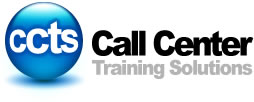If your call center makes selling attempts in any capacity, Fallback Offers can significantly increase your total sales and your average revenue per sale. Fallback Offers are not new, but few call centers maximize this important sales tool. By implementing the ideas in this article, your center can be well on its way to your best sales year ever.
What is a Fallback Offer?
A Fallback Offer is a second sales offer that follows an initial offer. When a caller rejects the initial sales offer, the telephone associate makes a second offer that is usually smaller in scope and reduced in price. For example, an airline sales associate may offer the “Premium Travel Package,” which includes first-class seating, upgraded meals and vouchers to various events. If rejected, the associate may make a Fallback Offer on a lower-priced package that doesn’t include the upgraded meals, and may have only business-class seats.
Why Do Fallback Offers Work So Well?
Fallback Offers work because people instinctively feel like they are “getting a deal.” The offer itself would not be so appealing if it were a first offer. Because, however, callers can compare it to the original, more comprehensive (and often more pricey) offer, this one seems like a steal. A Fallback Offer that costs $79.00 seems excellent when compared to an initial offer of $149.50. Most people state that they have a very hard time saying no to a Fallback Offer because “it just sounds too good to pass up.”
Fallback Offers Are Easy
The best thing about Fallback Offers is that they require little if any skill improvement to use. Even a poorly-attempted Fallback Offer will work some of the time, which is better than just letting the caller go after a single offer has been rejected. When we consult with call centers, the first thing we will recommend is that telephone associates start making Fallback Offers. Although we include best practices for Fallback Offers in our Telephone Sales Mastery workshop, supervisors can encourage their telephone associates to make Fallback Offers with little or no training. Telephone associates like Fallback Offers because they are easier to make than to try overcoming the caller’s objection to the initial offer.
Targeted Fallback Offers
One way to increase the effectiveness of a Fallback Offer is to listen to why the caller has rejected the initial sales offer. A caller may say, “Oh,that Premium Cable Package isn’t for me. It has so many movie channels. We don’t watch that many movies.” When callers explain why they are rejecting the initial offer, the telephone associate should formulate the Fallback Offer based on this information. In this example, the telephone associate can offer a package that includes fewer movie channels, rather than saying something unreasonable like, “Well, you really ought to watch more movies, you know.”
Guidelines About the Initial Offer
Most sales managers want their telephone associates to take a top-down offer approach. This means that the first offer should be the most expensive one, with the best features. If your center does not offer its best products, callers will not even have a chance to buy them. Additionally, Fallback Offers work brilliantly with this approach. If callers reject the higher offer, the Fallback Offer will often generate a sale. When telephone sales people begin with their lower-priced packages, Fallback Offers will have little or no impact.
Implement a Fallback Offer Strategy
Centers with new or hesitant telephone associates should implement an “Offer Strategy.” An Offer Strategy identifies the best Fallback Offer for each of your initial product offers. Telephone associates should place this offer strategy in their cubicles so they can see it when they are speaking to callers. An offer strategy is particularly important for centers that have dozens of different products or product lines.
If your center has veteran sales people that can easily choose a Fallback Offer based on the caller’s reason for rejecting the initial offer, no offer strategy is necessary. Just tell your telephone associates to listen for why the caller is saying, “No.” Veteran telephone associates should also feel comfortable asking the caller why he/she is rejecting the initial offer. A question that won’t put the caller on the defensive is, “What is it about this offer that you feel won’t meet your needs?”
What About Trying to Handle the Objection Instead of Falling Back to a Second Offer?
From a sales revenue perspective, this makes the most sense. Our Telephone Sales Mastery workshop includes a module on best practices for dealing directly with the caller’s rejection of the initial offer. We strongly recommend trying to maintain the original offer. Even a single attempt to overcome the caller’s objection will result in some additional sales of the higher-priced offer. If the caller says “No” again, telephone associates can still make a Fallback Offer.
Telephone Sales Mastery
When agents employ the sales tools from our Telephone Sales Mastery workshop, your callers will see the value of your products more than ever before. Sales will increase and your center’s “sales attitude” will surpass your expectations. If your center is still trying to improve sales, or if your telephone associates are resisting the whole concept of selling, contact us today. We will help you implement a telephone selling strategy that is easy to use and that will sound very appealing to your customers.

